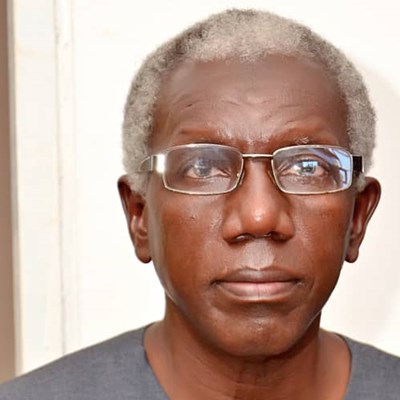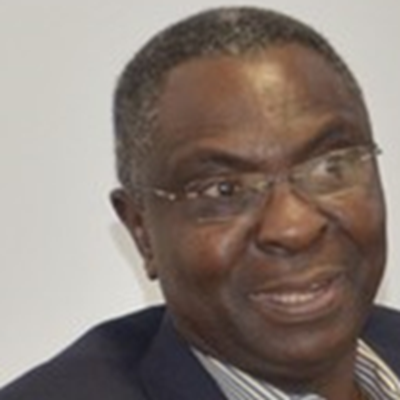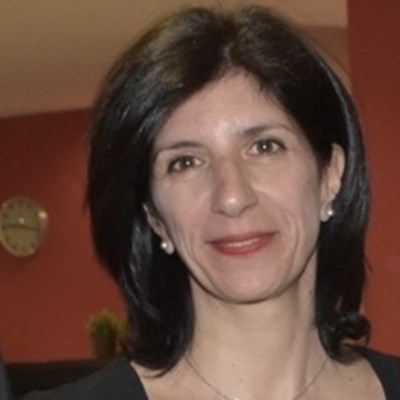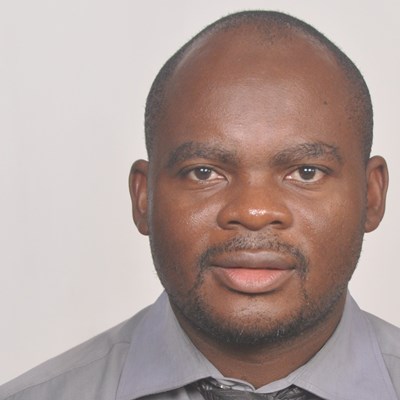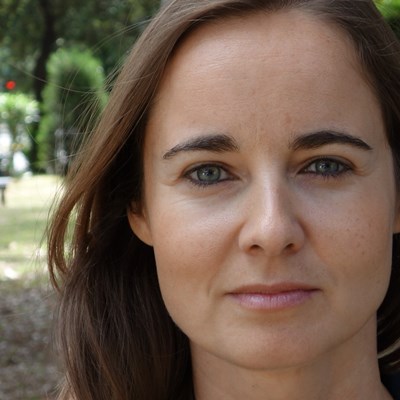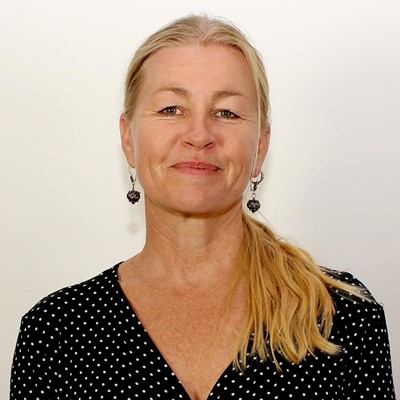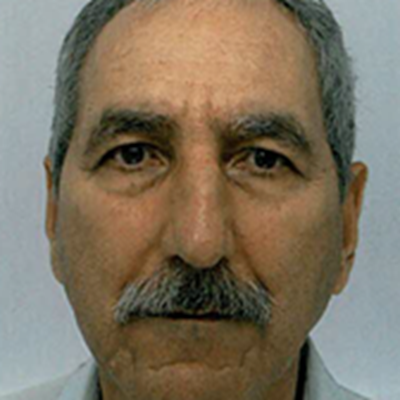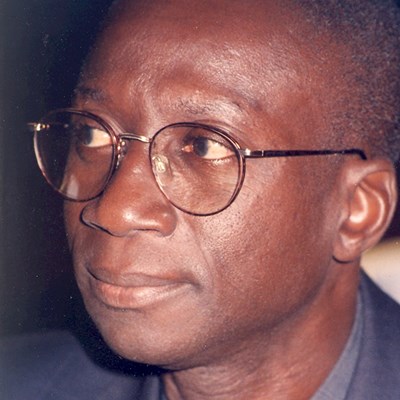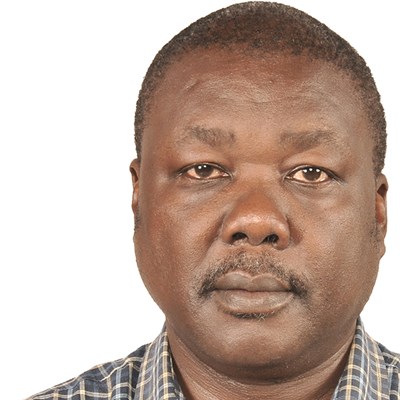Professor Issakha Youm holds a BSc degree in physical sciences (1978), a MSc (1979) in applied physics, a PhD degree (1983) in solar energy, and a higher Doctor of Science degree (1991) in solid state physics from University Cheikh Anta DIOP of Dakar (UCAD). He was awarded a scholarship from the French government as a visiting scientist (1986-1990) at the University of Montpellier II, France, and a Fulbright senior scholar award (1996) at the Institute of Energy Conversion (IEC), University of Delaware, USA. He also held visiting appointments as regular and senior associate (1995-2007) at the Abdus Salam International Centre of Theoretical Physics (AS-ICTP), Trieste, Italy. He has worked for the University Cheikh Anta DIOP of Dakar (UCAD) since 1981, as full Professor since 2004 in the Physics Department. Professor Issakha Youm is a physicist specialist covering research, teaching and consulting on Condensed Matter Physics (CMP) and Renewable Energy. Professor Issakha Youm main research activities are photovoltaics, solar thermal and biomass. In photovoltaics, research focuses on the fabrication and characterization of thin film semiconductor materials for solar cells devices. In the area of solar thermal energy, his interests lie in solar drying, solar cooling, and small-scale concentrating solar power technologies. Research on biomass is related on anaerobic co-digestion of manure and other organic waste, biomass combustion in cookstoves, cookstoves development and performance. He has co-authored more than 60 refereed publications, and he has supervised 10 PhD dissertations and 35 MSc theses. From 2007 to 2020, Prof. Issakha Youm held the position of Director of the Centre of Studies and Research in Renewable Energy “CERER”, an institute of the UCAD. He was head of the Physics Department of the UCAD, from 2003 to 2007. His is currently member of the International Solar Energy Society (ISES), African Material Research Society (A-MRS) and African Network on Solar Energy (ANESOLE).
Dr. Boateng is a Ghanaian-born American engineer and research scientist in the United States with over 36 years of experience spanning the minerals/materials processing industry, academia and government having served in various capacities as chief engineer, professor, and lead scientist at the USDA’s Agricultural Research Service. Here he led the project ‘Farm-Scale Pyrolysis Biorefining’ aimed at fulfilling US energy independence and climate change mitigation goals through the replacement of fossil resources with renewable, fungible fuels. He also served as Project Director and Principal Investigator (PI) on USDA-DOE grant project ‘Distributed On-Farm Bioenergy, Biofuels & Biochemicals (FarmBio3) Development & Production via Integrated Catalytic Thermolysis’ involving 14 university-industry partnerships. The latter effort led to the design, construction, and operation of the world’s first mobile on-farm pyrolysis demonstration system “The Kwesinator”. Dr. Boateng is currently Founder & Principal of Alpha Thermal Process, LLC, an independent consulting firm advising the high-temperature, energy and carbon intensive industry on process decarbonization. was founding member and key organizer of the North America Pyrolysis Network Group and has been Associate Editor of several scientific journals including the journal of Environmental Progress & Sustainable Energy. He has served as USDA-Foreign Agricultural Service (FAS) consultant on US State Department assignments on Energy and Climate Change Partnership of the Americas, ECPA (2013-2018). Dr. Boateng has published over 168 scientific articles, 137 of which are in high-profile peer reviewed journals; he is inventor of 6 issued patents plus 2 pending patents. He has received > 10,000 citations with h- and i-index of 52 and 112 respectively.
Dr. Elpida Kolokytha is a professor in Aristotle University of Thessaloniki AUTH, in the Faculty of Engineering, the School of Civil Engineering and specifically in the Division of Hydraulics and Environmental Engineering where she serves currently as Head of the Division. She holds a Bachelor/Master in Civil Engineering, Faculty of Engineering, from Aristotle University of Thessaloniki, Thessaloniki, Greece, (1993). She also holds a PhD in Water Resources Management and Engineering, , Aristotle University of Thessaloniki, Greece, (1999). She also visited for sabbatical Colorado State University, USA. Dr. Prof. E. Kolokytha started her academic career as lecturer (2003) in AUT h in the School of Civil Engineering, Div. of Hydraulics & Environmental Engineering, full Professor since 2020. She has 28 years of research experience, together with coordination skills and is the editor of two books in English (Springer 2017, T&F 2020) and has published more than 130 papers in hi impact scientific journals and conference proceedings. She is a member of several scientific associations related to water resources management and engineering worldwide. She has served as a reviewer for over 10 international scientific journals and more than 30 international conferences. She has worked in several projects in the EU, the Balkans and elsewhere and collaborated with multinational team of experts in projects funded by national agencies and EU institutions and universities, in public and private sector. She is the Head of the UNESCO Integrated Water Resources Management Center (CIMWRM) of Aristotle University of Thessaloniki. She has participated in 27 research and educational projects related to integrated water resources management, sustainable development for the environment and transboundary catchments e.g., TRABOREMA, IRON CURTAIN, FEMISE, TRANSCAT, TEMPUS, ERASMUS PLUS). She has also participated as an instructor in different European universities, in UNESCO seminars in the Balkans concerning environmental policy and water resources management issues and in EU.
Paul Falakeza Fatch is a Malawian extension and rural development professional who has worked since 2005 in the agriculture sector.From 2005 to 2015 he worked in Malawi’s Ministry of Agriculture in various extension positions, and from 2015 to date as a lecturer at Lilongwe University of Agriculture and Natural Resources (LUANAR). He holds various advisory positions in extension professional bodies, notably Vice Board Chairperson for African Forum for Agricultural Advisory Services (AFAAS) since 2019, and Secretary General for Malawi Forum for Agricultural Advisory Services (MaFAAS) since 2012. He holds a Master of Science Degree in Rural Development and Extension, and a Bachelor of Science Degree in Agricultural Extension, both from the University of Malawi (UNIMA). He has published 5 articles in peer reviewed journals. Paul Falakeza Fatch has contributed to establishment of country fora for extension in Africa by championing the establishment and operation of MaFAAS, one of the pioneers AFAAS country fora from which lessons are replicated elsewhere in Africa. He also contributed to the development of guidelines for extension approaches, methods, and tools in Malawi such as lead farmer, harmonized demonstrations, harmonized programming, farmer’s field school, and development of training manuals for extension staff in Malawi, resulting in 21 major official documents for Malawi. He has coordinated and managed high impact projects such as the 2009 to 2013 Support to Agricultural Extension and Training Services Project (SAETS) funded by Flanders Government, 2009 to 2015 Agriculture Sector Wide Approach Support Project (ASWAp-SP) funded by various donors, and 2016 to 2019 Crops for Healthy Diets: Linking Agriculture and Nutrition (HealthyLAND) funded by the German Ministry of Agriculture.
Anne Bogdanski is a Natural Resources Officer at the Office of Climate Change, Biodiversity and Environment of the United Nations Food and Agriculture Organization in Rome, Italy. Anne joined the organization in 2009, where she coordinates the International Working Group on Sustainable Bioeconomy, and FAO´s “Towards Sustainable Bioeconomy Guidelines”. The project guides and accompanies FAO member countries in the development of sustainable and circular bioeconomy strategies and programs. Her research interests focus on the sustainable transformation of food systems, including through bio-innovations and the role of the microbiome in agriculture, nutrition, and health. Previously, Anne worked for the German Technical Cooperation, for the financial newspaper Frankfurter Allgemeine Zeitung, and at the University of Canterbury/NZ. She holds a M.Sc. in Biology with specialization in Ecology and Biotechnology.
Karen holds a master degree in international development and environmental management and has 25 years of experience working with international development and humanitarian response - in Denmark and developing countries primarily in Africa and Latin America. During this time, she has held several senior management positions, with proven results in strategic leadership, organisational growth and change management. Her professional experience also covers policy advocacy, project and programme design, fundraising and partnerships with civil society organisations, research institutions and private sector partners. Fields of work include human rights, gender and social accountability, livelihoods, food security, climate change adaptation, natural resource management and cash transfer programming.
Cristian Bedrossian has been key principal at Innov-Energies (France) before his retirement. INNOV-ENERGIES is a company specialized in the development and the marketing of clean technologies for energy production using biomass. His main activities in Innov-Energies have been among others: a) Marketing of Biomass boiler and micro-cogeneration (CHP) for Industry and Community, b) Rural electrification in Madagascar: in the framework of a project led by CIRAD with European funding, a bioelectricity generator of 75 kw (wood boiler for steam production and steam engine) has been installed for the electrification of a village in Madagascar, c) Wood gasifier development for the production of wood gas used in industrial boilers in substitution of fossil fuels, d) Clean production of charcoal: CML Process. Since 1993, in partnership with a charcoal manufacturer and the CIRAD, Innov-Energies have been developing and installing a clean technology to produce charcoal, the CML process. A few units have been installed in France and more recently in China and Russia.
Mr Oumar SOCK is Professor of Analytical Chemistry. He obtained his Bachelor of Science degree in Physical Sciences from Cheikh Anta Diop University (UCAD, Dakar, Senegal), a Master of Science and a Doctorate in Electrochemistry, both from Louis Pasteur University (Strasbourg, France) and a State Doctorate degree in Electrochemistry from Paris 12 University (France), where he has been Assistant Professor during seven years. He was awarded «Best Thesis» by National Center of Scientific Research (CNRS, France) and joined UCAD as professor in 1987. He became successively Director of UCAD’s Technical and Vocational Teacher Training College (1990-1995), Director of Polytechnic College of Engineering of UCAD (1995-2003), Vice-Chancellor of Assane Seck University of Ziguinchor (2009-2013), Manager General of Higher Education of Senegal (January 2013-December 2014). Prof. SOCK has been Director of Polytechnic College of Engineering’s Laboratory of Electrochemistry and Membrane Processes (1994-2010), national Coordinator of Senegal /World Bank’s Higher Education Programs during more than ten years, President (2004-2012) of CITEF-AUF, a global network of francophone colleges of Engineering.
Ben Lukuyu has a PhD in animal nutrition from the University of Reading, United Kingdom and specializes in feeds and feeding of ruminants and non-ruminants. His research work is dedicated to productivity-enhancing research to transform animal nutrition research outputs for wider use by various actors in livestock value chains. Mostly, this also involves translating high-end laboratory research to farm level use to benefit farmers. His interest has expanded to integration of livestock in smallholder crop-livestock production systems through feeds and feeding and looking at the broader impacts of livestock on the environment. He has contributed significantly to the technical development of the FEAST and G-FEAST tools which are decision-support tools for engaging communities and stakeholders in identifying and designing appropriate feed interventions in smallholder systems. He has Contributed to the development of the FEAST blended learning course based on adult learning theory (ALT) and instructional design principles and practices. He has extensive experience on the use of, and training on FEAST/G-FEAST tools, He has worked in East Africa, southern Africa, West Africa, India, and Pakistan amongst others. In addition to research roles, currently, he is ILRI’s country representative in Uganda where he leads the Smallholder pig value chain development project and provides overall coordination of ILRI’s activities in the country. His has led several projects including the Africa RISING-East and Southern Africa project in, Tanzania, the Feed the Future Innovation Lab for Small-Scale Irrigation project in Tanzania on small-Scale Irrigated Fodder Research funded by USAID, Supported the feed development on the Agricultural Innovation Program (AIP) for Pakistan, funded, and coordinated and implemented all the ILRI’s Feeds and Forages research program in East Africa amongst others.
